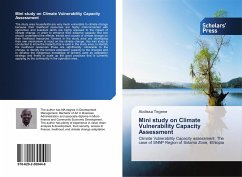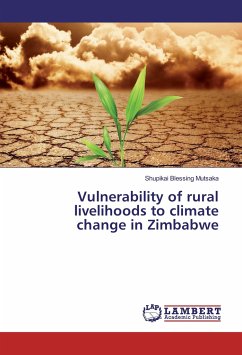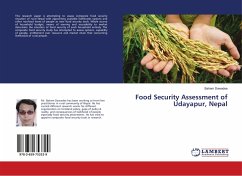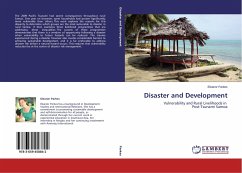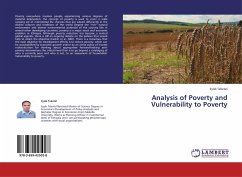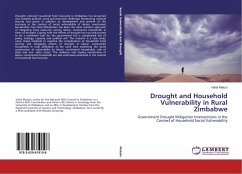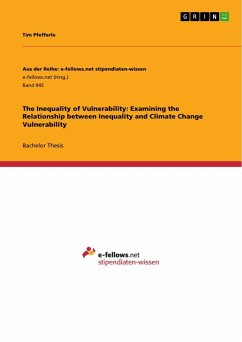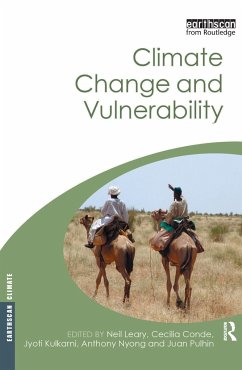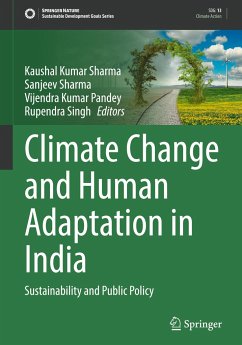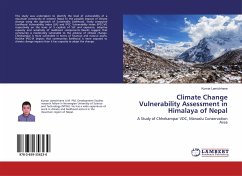
Climate Change Vulnerability Assessment in Himalaya of Nepal
A Study of Chhekampar VDC, Manaslu Conservation Area
Versandkostenfrei!
Versandfertig in 6-10 Tagen
24,99 €
inkl. MwSt.

PAYBACK Punkte
12 °P sammeln!
This study was undertaken to identify the level of vulnerability of a mountain community of western Nepal to the possible impacts of climate change using the approach of Sustainable Livelihood. Study computed Livelihood Vulnerability Index (LVI) and IPCC Vulnerability Index (IPCC-VI) respectively on the basis of 5 capitals of SLF and exposure, adaptive capacity and sensitivity of livelihood components. Results suggest that community is moderately vulnerable to the adverse of climate change. Chhekampar is more vulnerable in terms of financial and natural assets. Positive IPCC-VI depicts that co...
This study was undertaken to identify the level of vulnerability of a mountain community of western Nepal to the possible impacts of climate change using the approach of Sustainable Livelihood. Study computed Livelihood Vulnerability Index (LVI) and IPCC Vulnerability Index (IPCC-VI) respectively on the basis of 5 capitals of SLF and exposure, adaptive capacity and sensitivity of livelihood components. Results suggest that community is moderately vulnerable to the adverse of climate change. Chhekampar is more vulnerable in terms of financial and natural assets. Positive IPCC-VI depicts that community's livelihood is more exposed to climate change impacts than it has capacity to adapt the change.



